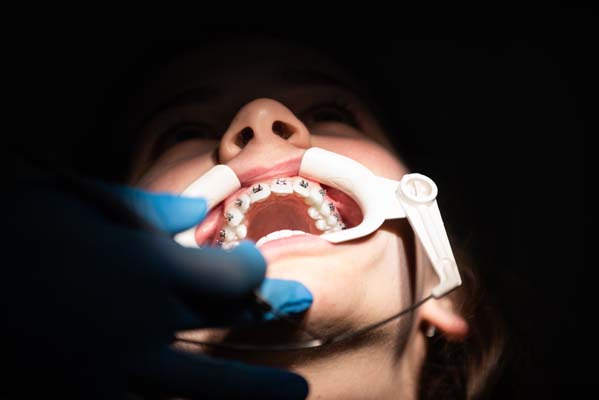4 Reasons to Visit an Emergency Dentist

Thinking you need to see an emergency dentist to address your current dental problem? You never know when a dental emergency is going to arise. Which makes it a good idea for you to find an emergency dentist, just in case.
There are many different types of dental emergencies. Some emergencies are minor and can wait to be seen by one’s primary dental provider. Minor dental emergencies should still be seen by a dentist within 24 to 48 hours.
Handling a dental emergency
Wanting information from an emergency dentist on how to handle a dental emergency? The first and most important thing someone should do is remain calm. This can be established by taking deep, slow breaths and focusing not on the problem, but on the solution.
Keeping a dental emergency kit nearby is suggested and should include plenty of clean gauze, a saline solution, hydrogen peroxide, salt and water. Printing out a list of dental emergency instructions is also recommended and should be kept inside the dental emergency kit.
Four reasons to visit an emergency dentist
The following is a list of four reasons that warrant a trip to see an emergency dentist for immediate treatment.
- A knocked out tooth: When a tooth is completely knocked out of someone’s mouth, it is essential for them to get to an emergency dental office within an hour in order to save the tooth. Since our teeth are designed to last our entire lifetime, it is always worth the time to visit an emergency dentist in order to save one’s tooth. Once a tooth is lost, it is necessary to find a tooth replacement option
- Extreme swelling: Swelling is more often than not a sign of oral infection. One of the more serious types of oral infections is an abscessed tooth. Since it is possible for an oral infection to spread to the rest of the body, an emergency trip to the dentist is necessary when any swelling is present in the mouth area
- Oral bleeding that does not stop after 15 minutes: When someone is experiencing bleeding in the mouth that does not stop even after applying gentle pressure for 15 minutes, they need to visit an emergency dentist for treatment. When bleeding continues after 15 minutes it is likely due to a deep laceration and therefore needs to be treated as soon as possible in an emergency dental office
- Severe, unbearable oral pain: There are degrees of oral pain, ranging from minor pain to severe pain. It is when someone is experiencing oral pain that is so severe that it becomes unbearable is when they need to call an emergency dentist for treatment. Severe oral pain is often related to a toothache and may require root canal therapy, which will save the tooth
We can help
When you are in need of an emergency dentist, we can help you. It is important that you get the proper dental care you need when experiencing a dental emergency. If you do not, it can mean the difference between saving a tooth and losing a tooth. If you are currently experiencing what you think is a dental emergency yet you are not sure, then we invite you to contact us now for the guidance you need.
Are you considering an emergency dentist in the Houston area? Get more information at https://www.lastingimpressionsdentalgroup.com.
Check out what others are saying about our services on Yelp: Read our Yelp reviews.
Recent Posts
When it comes to oral health care for children and teenagers, choosing a kid friendly dentist is a great idea. Although other dentists can cater to children and adults alike, a kid friendly dentist usually has specialized training and tools to handle children, as well as an office environment designed to put kids at ease.…
Fastbraces® are the quickest way to improve the alignment of crooked teeth. These devices often negate the need for extractions and they can safely straighten teeth in as little as three months. This article will explore how fastbraces® work and some of the important things to know when thinking about going this route.Fastbraces® share some…
Sedation dentistry is a common option for various levels of dental treatment in today's age. It can help with something as simple as teeth cleaning to something more serious, like a tooth extraction. Regardless for the reason, people are curious about sedation dentistry and have several questions.1. Sedation dentistry can ease anxietySedation dentistry is the…
Implant supported dentures are becoming a popular tooth replacement option. They are known to replace entire arches of teeth, whether it be the top or bottom. However, because tooth replacement can be complex, many individuals are curious as to how successful the process is for upper teeth. Continue reading to find out! Below is a quick…


